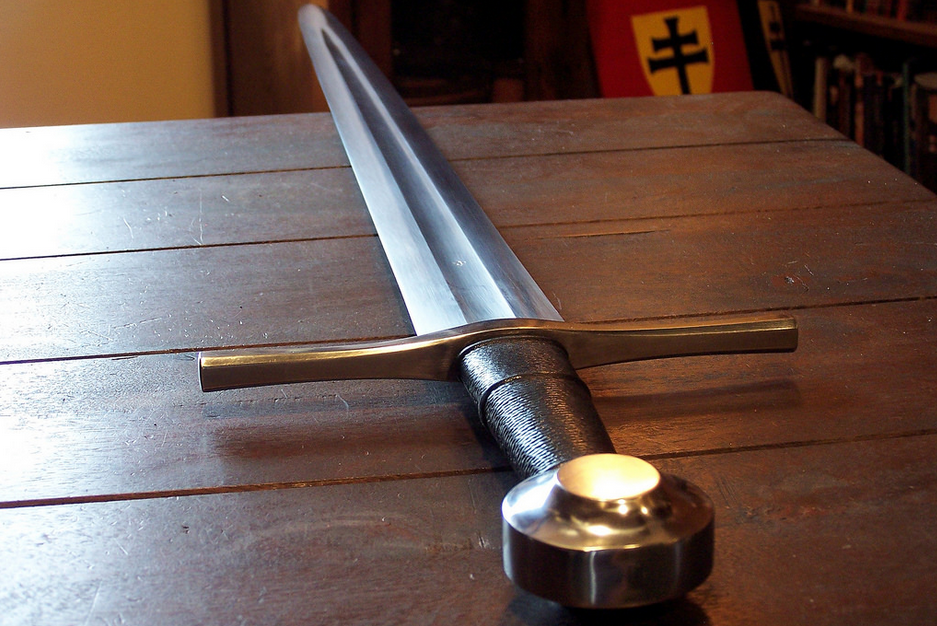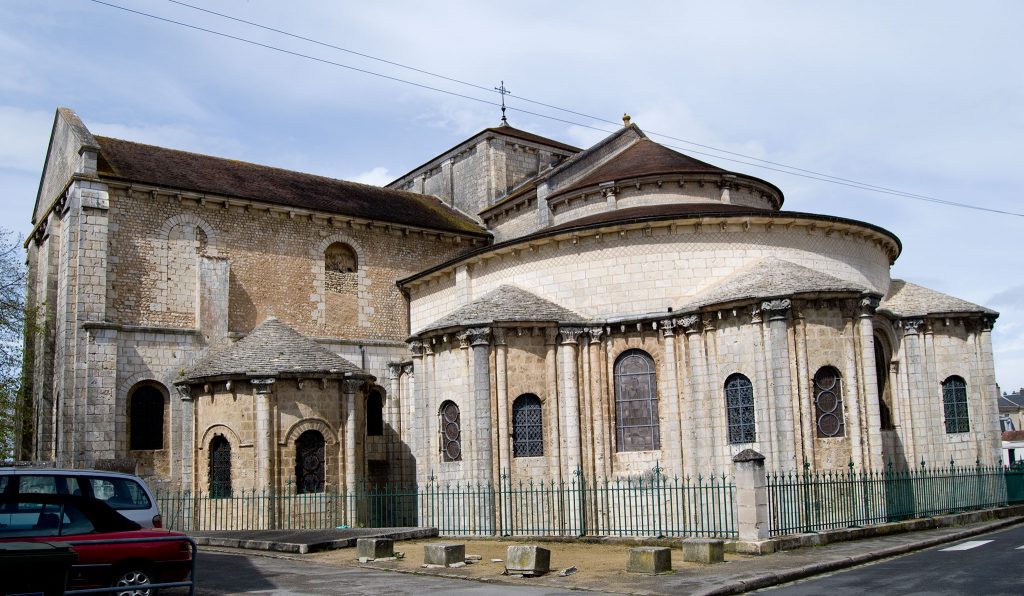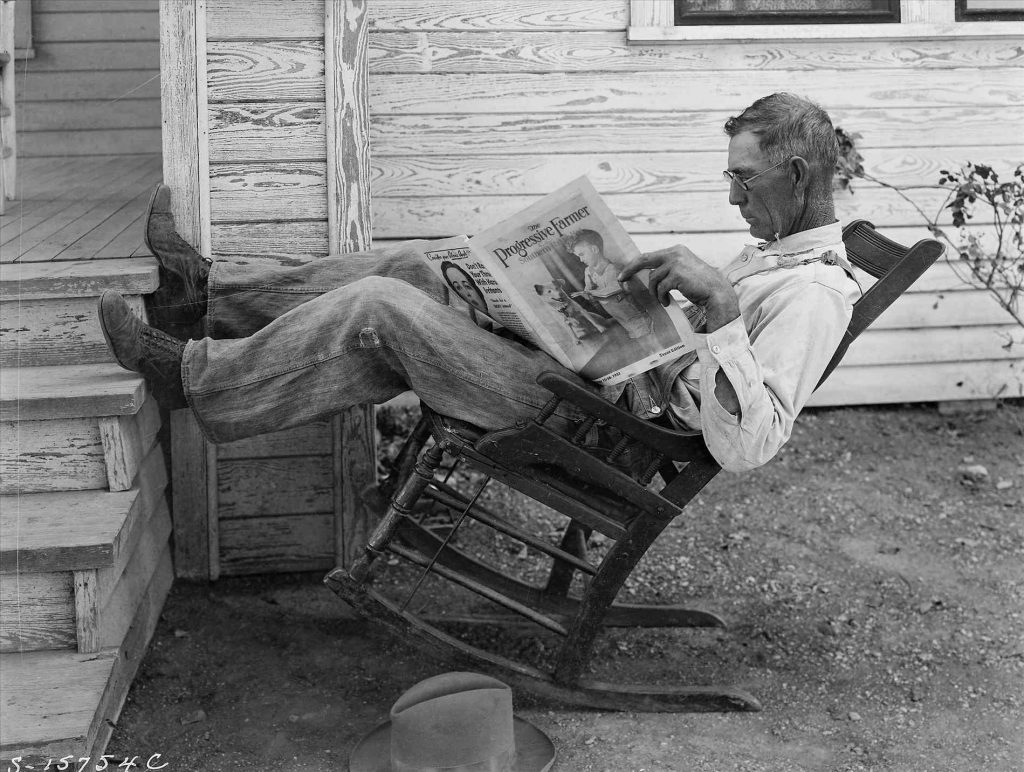Editor’s Note: This is the fourth chapter of William the Conqueror, by Jacob Abbot (published 1877).
IV. William’s Reign in Normandy
From the time of William’s obtaining quiet possession of his realm to his invasion of England, a long period intervened. There was a lapse of more than twenty years. During this long interval, William governed his duchy, suppressed insurrections, built castles and towns, carried on wars, regulated civil institutions, and, in fact, exercised, in a very energetic and successful manner, all the functions of government—his life being diversified all the time by the usual incidents which mark the career of a great military ruler of an independent realm in the Middle Ages. We will give in this chapter a description of some of these incidents.
On one occasion a conspiracy was formed to take his life by secret assassination. A great chieftain, named Guy of Burgundy, William’s uncle, was the leader of it, and a half-witted man, named Galet, who occupied the place of jester or fool in William’s court, was the means of discovering and exposing it. These jesters, of whom there was always one or more in the retinue of every great prince in those days, were either very eccentric or very foolish, or half-insane men, who were dressed fantastically, in gaudy colors and with cap and bells, and were kept to make amusement for the court. The name of William’s jester was Galet.
Guy of Burgundy and his fellow-conspirators occupied certain gloomy castles, built in remote and lonely situations on the confines of Normandy. Here they were accustomed to assemble for the purpose of concocting their plans, and gathering their men and their resources—doing every thing in the most cunning and secret manner. Before their scheme was fully ripe for execution, it happened that William made a hunting excursion into the neighborhood of their territory with a small band of followers — such as would be naturally got together on such a party of pleasure. Galet, the fool, was among them.
As soon as Guy and his fellow-conspirators learned that William was so near, they determined to precipitate the execution of their plan, and waylay and assassinate him on his return.
They accordingly left their secret and lonely rendezvous among the mountains one by one, in order to avoid attracting observation, and went to a town called Bayeux, through which they supposed that William would have to pass on his return. Here they held secret consultations, and formed their final plans. They sent out a part of their number, in small bands, into the region of country which William would have to cross, to occupy the various roads and passes, and thus to cut off all possibility of his escape. They made all these arrangements in the most secret and cautious manner, and began to think that they were sure of their prey.
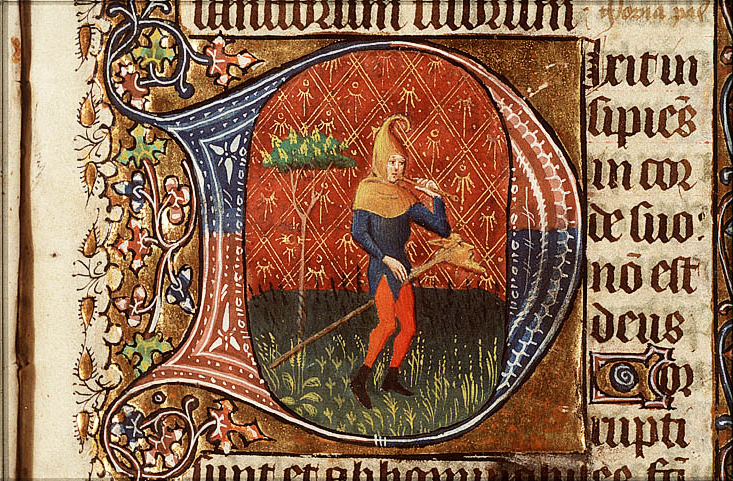
It happened, however, that some of William’s attendants, with Galet the fool among them, had preceded William on his return, and had reached Bayeux at the time when the conspirators arrived there. The townspeople did not observe the coming of the conspirators particularly, as many horsemen and soldiers were coming and going at that time, and they had no means of distinguishing the duke’s friends from his enemies; but Galet, as he sauntered about the town, noticed that there were many soldiers and knights to be seen who were not of his master’s party. This attracted his attention; he began to watch the motions of these strangers, and to listen, without seeming to listen, in order to catch the words they spoke to each other as they talked in groups or passed one another in the streets. He was soon satisfied that some mischief was intended. He immediately threw aside his cap and bells, and his fantastic dress, and, taking a staff in his hand, he set off on foot to go back as fast as possible in search of the duke, and give him the alarm. He found the duke at a village called Valonges. He arrived there at night. He pressed forward hastily into his master’s chamber, half forcing his way through the attendants, who, accustomed to the liberties which such a personage as he was accustomed to take on all occasions, made only a feeble resistance to his wishes. He found the duke asleep, and he called upon him with a very earnest voice to awake and arise immediately, for his life was in danger.
William was at first inclined to disbelieve the story which Galet told him, and to think that there was no cause to fear. He was, however, soon convinced that Galet was right, and that there was reason for alarm. He arose and dressed himself hastily; and, inasmuch as a monarch, in the first moments of the discovery of a treasonable plot, knows not whom to trust, William wisely concluded not to trust any body. He went himself to the stables, saddled his horse with his own hand, mounted him, and rode away. He had a very narrow escape; for, at the same time, while Galet was hastening to Valonges to give his master warning of his danger, the conspirators had been advancing to the same place, and had completely surrounded it; and they were on the eve of making an attack upon William’s quarters at the very hour when he set out upon his flight. William had accordingly proceeded only a little way on his route before he heard the footsteps of galloping horses, and the clanking of arms, on the road behind him. It was a troop of the conspirators coming, who, finding that William had fled, had set off immediately in pursuit. William rode hastily into a wood, and let them go by.
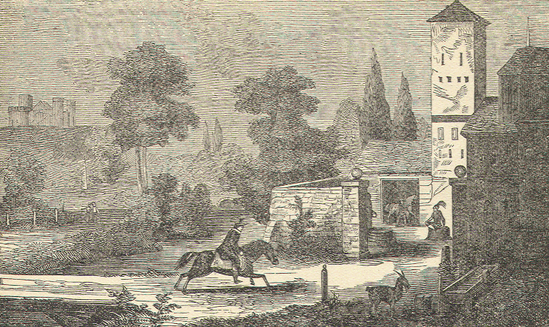
He remained for some time in his hiding-place, and then cautiously emerged from it to continue his way. He did not dare to keep the public road, although it was night, but took a wild and circuitous route, in lanes and by-paths, which conducted him, at length, to the vicinity of the sea. Here, about day-break, he was passing a mansion, supposing that no one would observe him at so early an hour, when, suddenly, he perceived a man sitting at the gate, armed and equipped, and in an attitude of waiting. He was waiting for his horse. He was a nobleman named Hubert. He recognized William immediately as the duke, and accosted him in a tone of astonishment, saying, “Why, my lord duke, is it possible that this is you?” He was amazed to see the ruler of the realm out at such an hour, in such a condition, alone, exhausted, his dress all in disorder from the haste with which he had put it on, and his steed breathless and covered with dust, and ready, apparently, to drop down with fatigue and exhaustion.
William, finding that he was recognized, related his story. It appeared, in the end, that Hubert held his own castle and village as a tenant of one of the principal conspirators, and was bound, according to the feudal ideas of the time, to espouse his landlord’s cause. He told William, however, that he had nothing to fear. “I will defend your life,” said he, “as if it were my own.” So saying, he called his three sons, who were all athletic and courageous young men, and commanded them to mount their horses and get ready for a march. He took William into his castle, and gave him the food and refreshment that he needed. Then he brought him again into the court-yard of the house, where William found the three young horsemen mounted and ready, and a strong and fleet steed prepared for himself. He mounted. Hubert commanded his sons to conduct the prince with all dispatch to Falaise, without traveling at all upon the highway or entering a town. They took, accordingly, a straight course across the country—which was probably then, as now, nearly destitute of inclosures—and conducted William safely to his castle at Falaise.
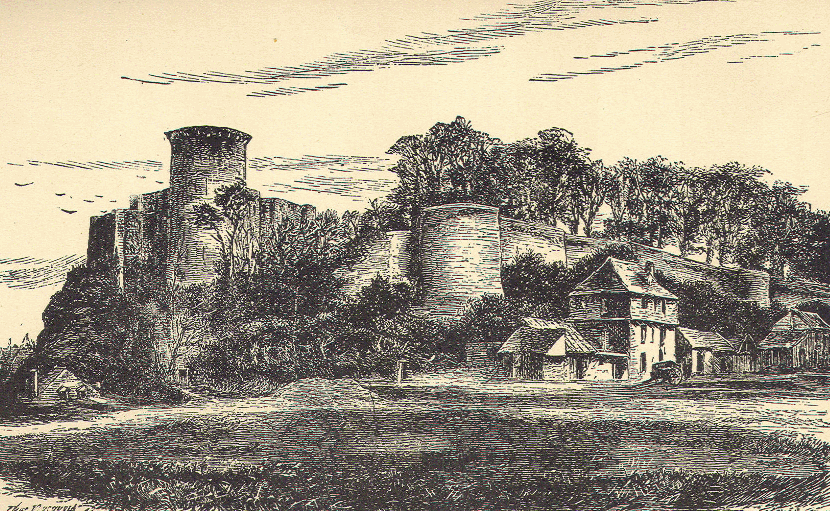
In the course of the morning, William’s pursuers came to Hubert’s castle, and asked if the duke had been seen going by. Hubert replied in the affirmative, and he mounted his steed with great readiness to go and show them the road which the fugitive had taken. He urged them to ride hard, in hopes of soon overtaking the object of their pursuit. They drove on, accordingly, with great impetuosity and ardor, under Hubert’s guidance; but, as he had purposely taken a wrong road, he was only leading them further and further astray. Finally they gave up the chase, and Hubert returned with the disappointed pursuers to his fortress, William having in the mean time arrived safely at Falaise.
The conspirators now found that it was useless any longer to attempt to conceal their plans. In fact, they were already all exposed, and they knew that William would immediately summon his troops and come out to seize them. They must, therefore, either fly from the country or attempt an open rebellion. They decided on the latter—the result was a civil war. In the end, William was victorious. He took a large number of the rebels prisoners, and he adopted the following very singular plan for inflicting a suitable punishment upon them, and at the same time erecting a permanent monument of his victory. He laid out a public road across the country, on the line over which he had been conducted by the sons of Hubert, and compelled the rebels to make it. A great part of this country was low and marshy, and had been for this reason avoided by the public road, which took a circuitous course around it. The rebel prisoners were now, however, set at work to raise a terrace or embankment, on a line surveyed by William’s engineers, which followed almost exactly the course of his retreat. The high road was then laid out upon this terrace, and it became immediately a public thoroughfare of great importance. It continued for several centuries one of the most frequented highways in the realm, and was known by the name of the Raised Road—Terre levée—throughout the kingdom. In fact, the remains of it, appearing like the ruins of an ancient rail-road embankment, exist to the present day.
In the course of the war with these rebels a curious incident occurred at one of the battles, or, rather, is said to have occurred, by the historians who tell the story, which, if true, illustrates very strikingly the romantic and chivalrous ideas of the times. Just as the battle was commencing, William perceived a strong and finely-equipped body of horsemen preparing to charge upon the very spot where he himself, surrounded by his officers, was standing. Now the armor worn by knights in battle in those times covered and concealed the figure and the face so fully, that it would have been impossible even for acquaintances and friends to recognize each other, were it not that the knights were all accustomed to wear certain devices upon some part of their armor—painted, for instance, upon their shields, or embroidered on little banners which they bore—by means of which they might be known. These devices became at length hereditary in the great families—sons being proud to wear, themselves, the emblems to which the deeds of their fathers had imparted a trace of glory and renown. The devices of different chieftains were combined, sometimes, in cases of intermarriage, or were modified in various ways; and with these minor changes they would descend from generation to generation as the family coat of arms. And this was the origin of heraldry.
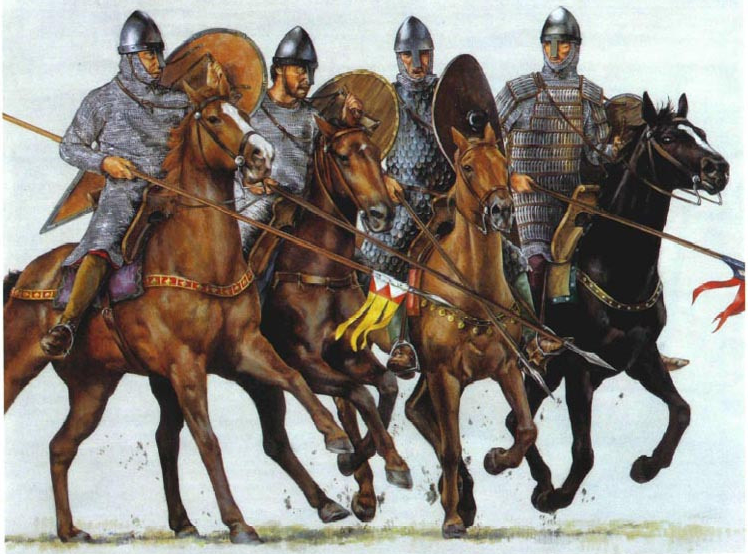
Now the body of horsemen that were advancing to the charge, as above described, had each of them his device upon a little flag or banner attached to their lances. As they were advancing, William scrutinized them closely, and presently recognized in their leader a man who had formerly been upon his side. His name was Rollo de Tesson. He was one of those who had sworn fealty to him at the time when his father Robert presented him to the council, when setting out upon his pilgrimage. William accordingly exclaimed, with a loud voice, “Why, these are my friends!” The officers and the soldiers of the body-guard who were with him, taking up the cry, shouted “Friends! friends!” Rollo de Tesson and the other knights, who were slowly coming up, preparing to charge upon William’s party, surprised at being thus accosted, paused in their advance, and finally halted. Rollo said to the other knights, who gathered around him, “I was his friend. I gave my oath to his father that I would stand by him and defend him with my life; and now I have this morning sworn to the Count of Cotentin” — the Count of Cotentin was the leader of the rebellion — “that I would seek out William on the battle-field, and be the first to give him a blow. I know not what to do.” “Keep both oaths,” replied one of his companions. “Go and strike him a gentle blow, and then defend him with your life.” The whole troop seconded this proposal by acclamation. Rollo advanced, followed by the other knights, with gestures and shouts denoting that they were friends. He rode up to William, told him that he had that morning sworn to strike him, and then dealt him a pretended blow upon his shoulder; but as both the shoulder and the hand which struck it were armed with steel, the clanking sound was all the effect that was produced. Rollo and his troop—their sworn obligation to the Count of Cotentin being thus fulfilled—turned now into the ranks of William’s soldiery, and fought valiantly all day upon his side.
Although William was generally victorious in the battles that he fought, and succeeded in putting down one rebellion after another with promptness and decision, still, new rebellions and new wars were constantly breaking out, which kept his dominions in a continual state of commotion. In fact, the chieftains, the nobles, and the knights, constituting the only classes of society that exercised any influence, or were regarded with any respect in those days, were never contented except when actively employed in military campaigns. The excitements and the glory of war were the only excitements and glory that they understood, or had the means of enjoying. Their dwellings were great fortresses, built on the summits of the rocks, which, however picturesque and beautiful they appear as ruins now, were very gloomy and desolate as residences then. They were attractive enough when their inmates were flying to them for refuge from an enemy, or were employed within the walls in concentrating their forces and brightening up their arms for some new expedition for vengeance or plunder, but they were lonely and lifeless scenes of restlessness and discontent in times of quietness and peace.
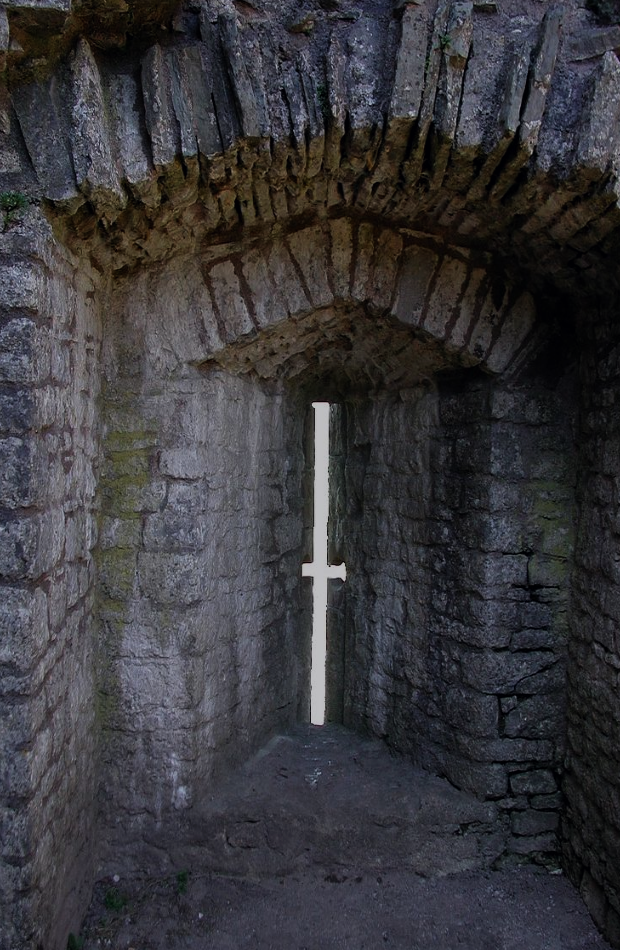
It is difficult for us, at this day, to conceive how destitute of all the ordinary means of comfort and enjoyment, in comparison with a modern dwelling, the ancient feudal castles must have been. They were placed in situations as nearly inaccessible as possible, and the natural impediments of approach were increased by walls, and gates, and ditches, and draw-bridges. The door of access was often a window in the wall, ten or fifteen feet from the ground, to which the inmates or their friends mounted by a ladder. The floors were of stone, the walls were naked, the ceiling was a rudely-constructed series of arches. The apartments, too, were ordinarily small, and were arranged one above another, in the successive stories of a tower. Nor could these cell-like chambers be enlivened by the wide and cheerful windows of modern times, which not only admit the light to animate the scene within, but also afford to the spectator there, wide-spread, and sometimes enchanting views of the surrounding country. The castle windows of ancient days were, on the contrary, narrow loop-holes, each at the bottom of a deep recess in the thick wall. If they had been made wide they would have admitted too easily the arrows and javelins of besiegers, as well as the wind and rain of wintery storms. There were no books in these desolate dwellings, no furniture but armor, no pleasures but drinking and carousals.
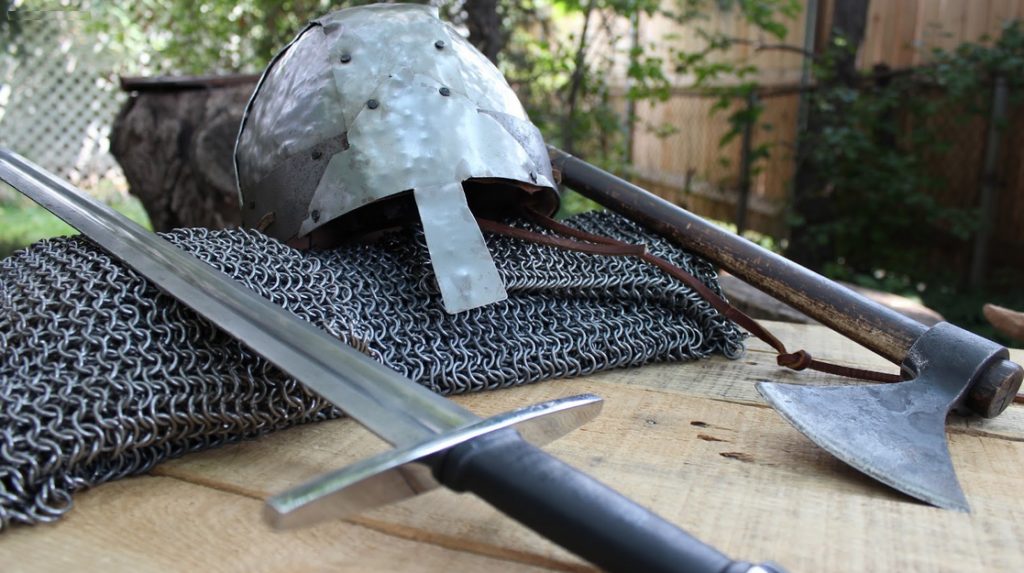
Nor could these noble and valiant knights and barons occupy themselves in any useful employment. There was nothing which it was respectable for them to do but to fight. They looked down with contempt upon all the industrial pursuits of life. The cultivation of farms, the rearing of flocks and herds, arts, manufactures, and commerce—every thing of this sort, by which man can benefit his fellow-man, was entirely beneath them. In fact, their descendants to the present day, even in England, entertain the same ideas. Their younger sons can enter the army or the navy, and spend their lives in killing and destroying, or in awaiting, in idleness, dissipation, and vice, for orders to kill and destroy, without dishonor; but to engage in any way in those vast and magnificent operations of peaceful industry, on which the true greatness and glory of England depend, would be perpetual and irretrievable disgrace. A young nobleman can serve, in the most subordinate official capacity, on board a man-of-war, and take pay for it, without degradation; but to build a man-of-war itself and take pay for it, would be to compel his whole class to disown him.
It was in consequence of this state of feeling among the knights and barons of William’s day that peace was always tedious and irksome to them, and they were never contented except when engaged in battles and campaigns. It was this feeling, probably, quite as much as any settled hostility to William’s right to reign, that made his barons so eager to engage in insurrections and rebellions. There was, however, after all, a real and deep-seated opposition to William’s right of succession, founded in the ideas of the day. They could not well endure that one of so humble and even ignominious birth, on the mother’s side, should be the heir of so illustrious a line as the great dukes of Normandy. William’s enemies were accustomed to designate him by opprobrious epithets, derived from the circumstances of his birth. Though he was patient and enduring, and often very generous in forgiving other injuries, these insults to the memory of his mother always stung him very deeply, and awakened the strongest emotions of resentment. One instance of this was so conspicuous that it is recorded in almost all the histories of William that have been written.
It was in the midst of one of the wars in which he was involved, that he was advancing across the country to the attack of a strong castle, which, in addition to the natural strength of its walls and fortifications, was defended by a numerous and powerful garrison. So confident, in fact, were the garrison in their numbers and power, that when they heard that William was advancing to attack them, they sent out a detachment to meet him. This detachment, however, were not intending to give him open battle. Their plan was to lay in ambuscade, and attack William’s troops when they came to the spot, and while they were unaware of the vicinity of an enemy, and off their guard.
William, however, they found, was not off his guard. He attacked the ambuscade with so much vigor as to put the whole force immediately to flight. Of course the fugitives directed their steps toward the castle. William and his soldiers followed them in headlong pursuit. The end was, that the detachment from the garrison had scarcely time, after making good their own entrance, to raise the draw-bridges and secure the gates, so as to keep their pursuers from entering too. They did, however, succeed in doing this, and William, establishing his troops about the castle, opened his lines and commenced a regular siege.
The garrison were very naturally vexed and irritated at the bad success of their intended stratagem. To have the ambuscade not only fail of its object, but to have also the men that formed it driven thus ignominiously in, and so narrowly escaping, also, the danger of letting in the whole troop of their enemies after them, was a great disgrace. To retaliate upon William, and to throw back upon him the feelings of mortification and chagrin which they felt themselves, they mounted the walls and towers, and shouted out all sorts of reproaches and insults. Finally, when they found that they could not make mere words sufficiently stinging, they went and procured skins and hides, and aprons of leather, and every thing else that they could find that was connected with the trade of a tanner, and shook them at the troops of their assailants from the towers and walls, with shouts of merriment and derision.
William was desperately enraged at these insults. He organized an assaulting party, and by means of the great exertions which the exasperation of his men stimulated them to make, he carried some of the outworks, and took a number of prisoners. These prisoners he cut to pieces, and then caused their bloody and mangled limbs and members to be thrown, by great slings, over the castle walls.
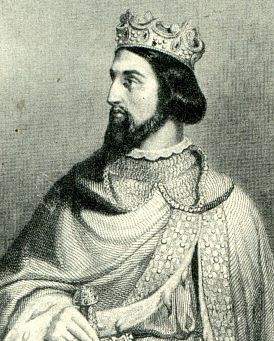
At one time during the period which is included within the limits of this chapter, and in the course of one of those intervals of peace and quietness within his own dominions which William sometimes enjoyed, the King of France became involved in a war with one of his own rebellious subjects, and William went, with an army of Normans, to render him aid. King Henry was at first highly gratified at this prompt and effectual succor, but he soon afterward began to feel jealous of the universal popularity and renown which the young duke began soon to acquire. William was at that time only about twenty-four years old, but he took the direction of every thing—moved to and fro with the utmost celerity—planned the campaigns—directed the sieges, and by his personal accomplishments and his bravery, he won all hearts, and was the subject of every body’s praises. King Henry found himself supplanted, in some measure, in the regard and honorable consideration of his subjects, and he began to feel very envious and jealous of his rival.
Sometimes particular incidents would occur, in which William’s feats of prowess or dexterity would so excite the admiration of the army that he would be overwhelmed with acclamations and applause. These were generally exploits of combat on the field, or of escape from pursuers when outnumbered, in which good fortune had often, perhaps, quite as much to do in securing the result as strength or courage. But in those days a soldier’s good luck was perhaps as much the subject of applause as his muscular force or his bravery; and, in fact, it was as deservedly so; for the strength of arm, and the coolness, or, rather, the ferocity of courage, which make a good combatant in personal contests on a battlefield, are qualities of brutes rather than of men. We feel a species of respect for them in the lion or tiger, but they deserve only execration when exercised in the wantonness of hatred and revenge by man against his brother man.
One of the instances of William’s extraordinary success was the following. He was reconnoitering the enemy on one occasion, accompanied only by four or five knights, who acted as his attendants and body-guard. The party were at a distance from the camp of the enemy, and supposed they were not observed. They were observed, however, and immediately a party of twelve chosen horsemen was formed, and ordered to ride out and surprise them. This detachment concealed themselves in an ambuscade, at a place where the reconnoitering party must pass, and when the proper moment arrived, they burst out suddenly upon them and summoned them to surrender. Twelve against six seemed to render both flight and resistance equally vain. William, however, advanced immediately to the attack of the ambuscaders. He poised his long lance, and, riding on with it at full speed, he unhorsed and killed the foremost of them at a blow. Then, just drawing back his weapon to gather strength for another blow, he killed the second of his enemies in the same manner. His followers were so much animated at this successful onset, that they advanced very resolutely to the combat. In the mean time, the shouts carried the alarm to William’s camp, and a strong party set off to rescue William and his companions. The others then turned to fly, while William followed them so eagerly and closely, that he and they who were with him overtook and disabled seven of them, and made them prisoners. The rest escaped. William and his party then turned and began to proceed toward their own camp, conveying their prisoners in their train.
They were met by King Henry himself at the head of a detachment of three hundred men, who, not knowing how much necessity there might be for efficient aid, were hastening to the scene of action. The sight of William coming home victorious, and the tales told by his companions of the invincible strength and daring which he had displayed in the sudden danger, awakened a universal enthusiasm, and the plaudits and encomiums with which the whole camp resounded were doubtless as delicious and intoxicating to him as they were bitter to the king.
It was by such deeds, and by such personal and mental characteristics as these, that William, notwithstanding the untoward influences of his birth, fought his way, during the twenty years of which we have been speaking, into general favor, and established a universal renown. He completely organized and arranged the internal affairs of his own kingdom, and established himself firmly upon the ducal throne. His mind had become mature, his resources were well developed, and his soul, always ambitious and aspiring, began to reach forward to the grasping of some grander objects of pursuit, and to the entering upon some wider field of action than his duchy of Normandy could afford. During this interval, however, he was married; and, as the circumstances of his marriage were somewhat extraordinary, we must make that event the subject of a separate chapter.

